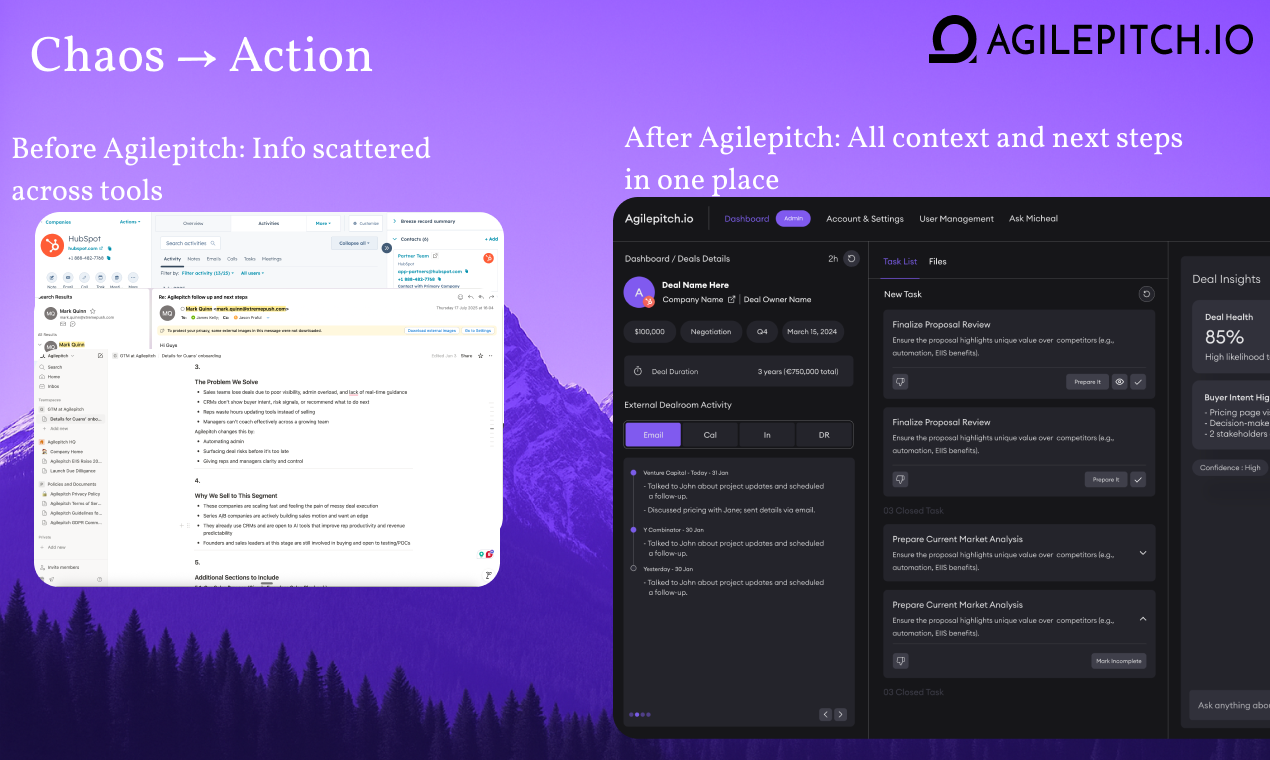What is a system of record?
A system of record is a centralized source of truth for customer data. In sales, that means information about accounts, contacts, opportunities, and activities.
The value:
- Everyone has a consistent view of past interactions.
- Finance, RevOps, and leadership can run reports.
- Compliance and governance are easier to manage.
The limitation:
- It is retrospective, not proactive.
- Data is often incomplete or stale.
- Reps see it as a reporting tool rather than a selling tool.
What is a system of engagement?
A system of engagement is the layer where sellers and buyers actually interact. It unifies emails, calls, video meetings, and collaboration tools. More importantly, it uses AI to recommend actions in real time.
Instead of storing history, it answers the forward-looking question: What should happen next?
Key traits of a system of engagement:
- Operates in the flow of work, not outside it.
- Surfaces buyer intent signals and risks.
- Suggests contextual tasks and next steps.
- Learns from rep behavior and adapts over time.
How is a system of engagement different from a system of record?
Think of it this way:
- A CRM tells you a meeting took place.
- A system of engagement recommends who to follow up with, when to do it, and what to say.
Comparison:
Why does this matter for sales teams?
Reps spend too much time updating CRMs and not enough time selling. The result is bad data, inaccurate forecasts, and lost deals.
A system of engagement flips this dynamic:
- Reps get proactive guidance instead of manual admin.
- Leaders get forecasts based on live buyer signals, not outdated pipeline fields.
- Companies win more deals by ensuring the right action happens at the right time.
How does AI power systems of engagement?
Artificial intelligence adds the intelligence that CRMs lack.
At Agilepitch, our platform connects to CRM data, email, and calendars to do three things:
- Analyze live buyer activity and detect intent.
- Generate deal-specific tasks and recommendations.
- Adapt as reps provide feedback, making future suggestions more precise.
This turns sales AI into more than a reporting tool. It becomes a coach inside every deal, pushing it forward.
Will CRMs disappear?
No. CRMs remain critical as the official database of record. They provide governance, compliance, and a structured backbone. But they were never designed for frontline sellers.
The future is a partnership:
- The CRM continues as the system of record.
- The system of engagement becomes the operating system for sellers.
Conclusion
Sales teams no longer succeed by simply keeping records. Success comes from timely engagement with buyers and smart execution inside deals. That requires a new category of software.
Agilepitch is built as a system of engagement. It transforms static CRM data into proactive guidance, so sales teams know what to do next and have the confidence to execute.
The record tells you where you have been. Engagement takes you where you need to go.



